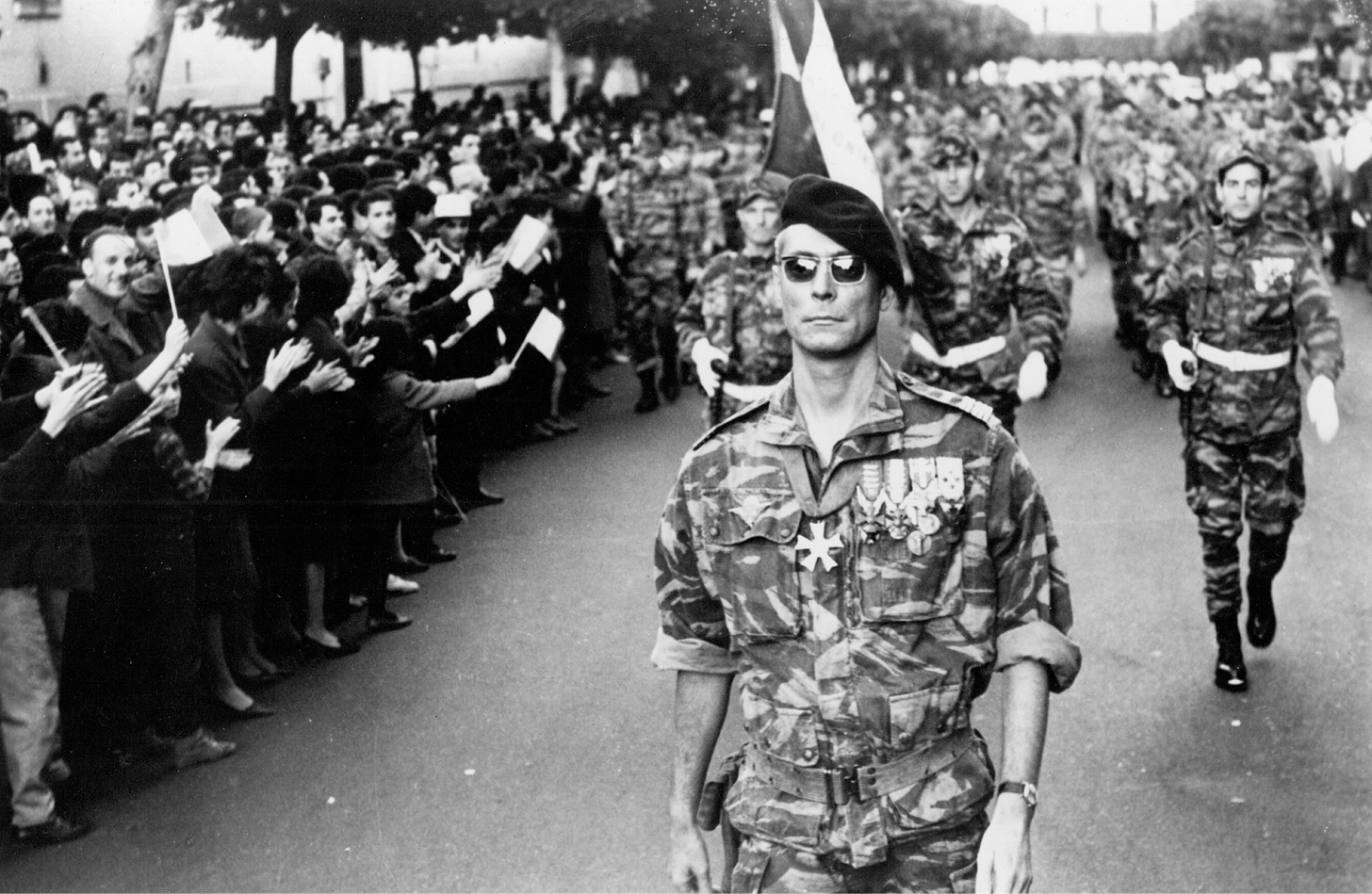The Battle of Algiers
Unsparing
The Battle of Algiers (La battaglia di Algeri, 1966) is a testament to the brutal and searing realities of colonialism and the struggle for liberation. (If you’re tired of hearing about colonialism this month, then you are going to hate reading deeper into African history.) Directed by Gillo Pontecorvo, this Italian-Algerian co-production is one of the most influential political films ever made. Ask any film school student, and they’ll be able to tell you that they’ve seen this or are planning on seeing it. (Make fun of them if they haven’t seen it yet.) Its documentary-style realism and unflinching portrayal of the Algerian War of Independence have cemented the movie as a cinematic masterpiece.
Set between 1954 and 1962, The Battle of Algiers chronicles the rise of the National Liberation Front (FLN) against French colonial rule in Algeria. The film focuses on the urban warfare that took place in the capital city, Algiers, depicting both the strategic, organized efforts of the FLN and the brutal counterinsurgency tactics employed by the French military. This is a movie that refuses to empathize with either side of the conflict, which only increases its power. Instead, it attempts to present a balanced view of the conflict, showing the devastating cost of war and its complexity.
Pontecorvo’s decision to shoot the film in a neorealist style adds to its authenticity and, frankly, helps cement neorealism despite the dearth of films that can be attributed to this genre. Shot in black and white, using handheld cameras and non-professional actors, The Battle of Algiers is a piece of history. The use of real locations in Algiers, combined with Ennio Morricone’s (whom you may recognize from copious westerns, or more recently, Tarantino westerns) tense, rhythmic score, creates a tense atmosphere underneath the conflict. The film’s pacing can feel relentless, which mirrors the escalating tension and violence that characterized the Algerian struggle for independence. It feels fifty years ahead of its time.
One of the most striking aspects of The Battle of Algiers is its portrayal of the FLN’s use of guerrilla tactics. The movie doesn’t shy away from the moral ambiguities of these tactics, depicting bombings, assassinations, and the targeting of civilians. These depictions in themselves are not groundbreaking. What feels groundbreaking is the movie also provides context for these actions, showing the systematic oppression and violence that the Algerian people endured under French rule. The film pushes viewers to grapple with the cost of resistance, the ethics of freedom, and the human toll of colonialism.
Colonel Mathieu (Jean Martin), the French paratrooper commander tasked with crushing the FLN, is a character study unlike any you’ve seen. Played with precision by Jean Martin, Mathieu is a pragmatic, calculating figure who embodies the cold logic of typical military strategy. Yet, Pontecorvo doesn’t reduce him to a mere villain; instead, Mathieu is portrayed as a man doing what he believes is necessary to maintain order and protect French interests. His exchanges with journalists, where he candidly discusses the nature of torture and the inevitability of violence in counterinsurgency, are some of the film’s most chilling moments.
Ali La Pointe, the film’s central figure within the FLN, is the opposite of Mathieu in many ways. Portrayed by Brahim Haggiag, Ali is a man of the people, driven by a desire for justice and liberation. His transformation from a petty criminal to a committed revolutionary is the film’s most compelling arc, illustrating the profound impact that colonialism and oppression can have on individuals and communities. Ali’s journey is one of radicalization, but it’s also one of empowerment, as he becomes a symbol of resistance against an overwhelming force.
What The Battle of Algiers does so brilliantly is show the cyclical nature of violence. The film opens with a scene of French paratroopers torturing a member of the FLN to extract information, and it closes with brutal work as well. In between, we see the back-and-forth of attacks and reprisals, each side pushing the other further into a corner. The film’s final moments, showing the eventual triumph of the Algerian people after years of struggle, are both triumphant and sobering, reminding us that the price of freedom is often paid in blood.
Despite being over half a century old, The Battle of Algiers remains relevant today. Its exploration of terrorism, counterterrorism, and the need for resistance resonates in a world still grappling with these issues. Military strategists and political scientists alike have studied the film, and its influence can be seen in countless other movies and documentaries that tackle similar themes. I challenge you to watch this movie and see how it jives with your worldview.
The Battle of Algiers
Directed by Gillo Pontecorvo
1966
121 minutes
Arabic, French
Recommended way to watch (at time of publication): Criterion Channel
You’ll like this if you like: Z (1969), Apocalypse Now (1979), The Act of Killing (2012)

